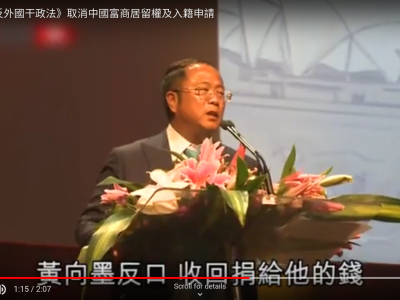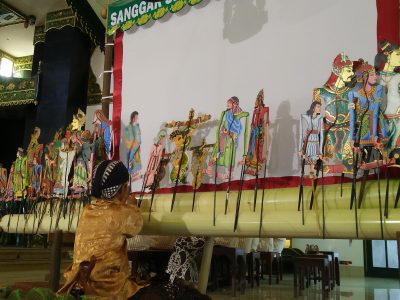斐濟《線上安全法》(Online Safety Act)在20192019年1月正式生效,各界擔憂該法將被用於網路審查。
在總檢察長辦公室將議案提交給國會審議2個月後,此法律在2018年5月通過。斐濟政府認為,有必要給婦女和兒童一個安全的網路環境:
The Fijian Government in its commitment to ensure access to connectivity for all Fijians, has embarked on promoting a safe online culture and environment in hindsight of the recent increase of reports on harmful online behaviour such as cyberbullying, cyber stalking, Internet trolling and exposure to offensive or harmful content, particularly in respect of children.
由於近期在網路上的霸凌、騷擾、挑釁、及散播具攻擊性或傷害性內容等事件層出不窮,針對兒童者尤其明顯,斐濟政府在致力於確保所有斐濟人都能享有接取網路權利的同時,也同步著手促進一個安全的網路文化與環境。
據估計,斐濟約有500,000名的活躍線上用戶。
自從2006年軍方發動政變後,斐濟媒體變由國家掌控。2010年,該國通過《媒體產業發展法》(Media Industry Development Decree),該法縱使承認新聞自由,但各界仍因恐懼國家報復,因而促使媒體業者自我審查。但另一方面,近年來社群媒體的使用頻率日趨增加,人民可以藉由這些平台分享他們的觀點、報導所選的新聞,並吸引公務人員參與。
一些報導提到,如果說《媒體產業發展法》管理的對象是主流媒體,那麼《線上安全法》即是為規範社交媒體而設計的。
14名反對黨的成員對《線上安全法》投下了反對票,他們表示該法會破壞民主。
但一些法案支持者提出異議:
Opponents of the Online Safety Bill say that it's undemocratic. What is democratic about lewd pictures going viral? What if it was your daughter or granddaughter? Will opposition take responsibility for that? #FijiNews #FijiPol #FijiParl #Fiji pic.twitter.com/ZbuSTylAxV
— FijiFirst (@FJFirstOfficial) May 16, 2018
反對《線上安全法》的人說這是不民主的。那麼散播不雅圖片到底哪裡民主了?如果受害的是你的女兒或是孫女呢?那些反對派的人要負責嗎?
斐濟的主流媒體《斐濟太陽報》(Fiji Sun Online)發表了一篇支持這項法案的社論:
The Online Safety Bill if passed will protect Fijians from being victimised on social media as is rampant today. It will make online users think twice before they post things online.
《線上安全法》的通過,將保護斐濟人民於現今社群媒體無所不在的情況下,避免受到傷害,並且使線上用戶在發表內容之前再三斟酌。
但批評者指出該法第四部份是有問題的,因為它可以任意地用來威脅網路用戶。該規定將「發佈造成個人傷害的電子通訊內容」視為犯罪行為,可處5年到7年徒刑。
除了被判入獄之外,那些被發現有違反法律的人將被科處最高20,000斐濟元(折合美金9,440元)。
反對這項法案的人警告,對於「造成傷害」是種違法行為的定義太過於廣泛,任何不同意見都可以被解釋為違法。
南太平洋大學(University of the South Pacific)的喬普‧提萊(Jope Tarai)指出,根據《線上安全法》第六條的規定,提擬的線上安全委員會(Online Safety Commission)似乎在模仿且複製警察網路犯罪部門(Cyber Crime Unit)的職能。除了設立監管互聯網內容的新機構外,該法律還賦予線上安全委員會更多的權力,「令人為對於言論自由的潛在威脅感到憂心」。
這位學者還警告,儘管公開宣導安全性,但該法律可能導致言論自由的審查:
The Act on the surface professes online ‘Safety’, while its vagueness on responsible free speech leaves the act open to being a Trojan horse for online ‘Regulation’ and censorship of dissenting voices.
The claimed intent behind the Online Safety Act is certainly a noble one and long overdue in so far as protecting women, children and victims of irresponsible online behavior is concerned. However, the ‘danger’ narrative creatively cultivated by Fijian state officials ignored the strengths of social media.
表面上該法公開宣稱線上「安全」,然而在言論自由責任方面卻含糊不清,使得這項法案成為線上「監管」和審查不同意見的一隻特洛伊木馬。
《線上安全法》背後聲稱的企圖當然是一個宏偉的企圖,保護婦女、兒童和那些遭受線上不負責任行為的受害者也是早就該做的事。然而,斐濟政府官員敘述的「危險」,忽略了社群媒體的力量。
在國會審議期間,一群年輕人列舉了他們對這項提案的擔心:
We are a group of individual youth concerned about the effect of this Bill on free speech in Fiji. While we appreciate the need to protect children and men and women against revenge porn or unauthorized sharing of their intimate images or videos, we are concerned that this Bill is too widely drafted, that it can be misused by those in authority to punish and prosecute those who share their views, who do not share the same political views i.e. it can be misused to prosecute political opponents, rather than serve its purpose to protect children against cyberbullying or other online abuse.
我們是一群年輕的個體,關心這項法令對斐濟言論自由的影響。雖然我們理解有必要保護兒童及成年男女避免那些「情色報復」(Revenge porn),或是避免未經授權分享他們的私人照片或影像;但我們擔心,《線上安全法》草擬的內容太過包山包海,會被那些掌權者濫用來懲罰並起訴那些分享自己觀點,而沒有分享和掌權者有相同政治觀點的人。換句話說,該法律會被濫用來起訴政治對手,而不是為了保護兒童免受網路霸凌或是其他網路濫用行徑。
最後,區域網路媒體太平洋自由論壇(Pacific Freedom Forum,簡稱PPF)警告,新的線上安全法將會「封鎖〔言論〕」,而非保護斐濟的人民。PFF玻里尼西亞聯合主席莫妮卡.米勒(Monica Miller)表示:
More than half a million citizens are now affected by this law and they need to be reassured that their rights to share ideas and information won’t be compromised even further.
現在有超過50萬的人民受到這項法律的影響,他們需要〔有人向他們〕保證,他們分享意見和資訊的權利不會受到進一步的損害。








